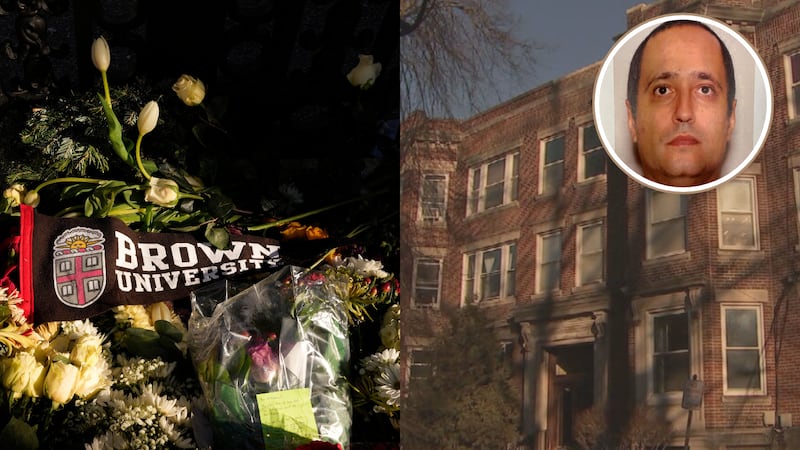BOSTON — A federal government website that offers people a way to find reputable drug rehab centers across the country is still linking visitors to companies that have either been shut down or are under criminal investigation, a Boston 25 News investigation has found.
The discovery comes just months after 25 Investigates first reported a growing list of people from Massachusetts and New Hampshire who've died while seeking addiction recovery with out-of-state programs.
Former rehab patient, Elizabeth Mooney of Weymouth, says she was briefly invited to receive treatment at Good Future Rehab Center in Delray Beach, Florida, but was denied after completing the intake process.
“I never attended one group. I never attended a therapy session,” said Mooney.
However, she says she got an unwelcome surprise once she returned to Massachusetts.
“Two months later, I get home here and I got a thing in the mail saying they charged my insurance $20,000.”
Good Future was also the last place Jesse McCauley of Rockland sought treatment for a heroin addiction after bouncing from program to program in South Florida, according to friends and family. McCauley’s mother told 25 Investigates her son never got the help he needed, but his insurance was still billed for thousands of dollars. McCauley died of an apparent overdose on Delray Beach in November 2016.
“He tried. He never stopped trying,” said Jeanmarie McCauley about her son’s effort to get clean.
Risky Recommendations
In December 2016, local law enforcement raided the former offices of Good Future, which had changed its name to Chapters Recovery. The company’s owner and other key officers were later arrested and charged with patient brokering. The alleged crime involves paying illegal kickbacks to third parties who recruit patients into the rehab program.
“Pretty much, people are getting paid for selling addicts,” said Delray Beach Police Detective Nicole Lucas.
While the State of Florida finally shut down Good Future Rehab in May, 25 Investigates found the business was still listed along with other rehab centers in an online "treatment center locator" operated by the Substance Abuse and Mental Health Services Administration (SAMHSA).
When 25 Investigates contacted SAMHSA about the discovery, it declined an interview request, but also removed Good Future from its website within hours of being notified. However, 25 Investigates discovered other questionable recovery programs remain on the government’s online list.
SAMHSA’s treatment locator identified a center operated by Sovereign Health of California, despite FBI raids of the business in June. The FBI told 25 Investigates there have been no arrests, but the case is still the subject of an active investigation.
In a statement e-mailed to 25 Investigates, a SAMHSA spokesman
<em>Facilities are listed in the locator only after meeting the following two conditions: 1) The facility has the approval to be added to the list from the Single State Authority on Substance Abuse for the state in which the facility operates and 2) the facility completes the annual National Survey of Substance Abuse Treatment Services. A facility will be dropped from the locator if either of these above two conditions is not met, or if SAMHSA is notified that the facility has closed. The state authority also has the ability to independently remove a facility from the locator.</em>
25 Investigates also shared the discovery with Massachusetts State Senator Jennifer Flanagan, (D) Leominster, who chairs two committees on substance use and recovery.
“I think it’s concerning because I’ve had families in my office who are desperate for treatment for their loved ones,” said Flanagan. “In Massachusetts, we do a really good job at working to make sure that the places we have for treatment are credible, but it’s just concerning that the federal government would have a list such as that up on the website.”
Credentials Questioned
Since January 2016, the program formerly known as Good Future Rehab also held a gold seal of approval from the Joint Commission – an independent non-profit that accredits and certifies nearly 21,000 health care organizations, according to its website.
While Good Future’s accreditation was later denied in March after a follow up survey, 25 Investigates found three other rehab programs under investigation in Florida, as well as Sovereign Health of California, still have their certifications.
In an e-mail, a spokeswoman for the Joint Commission said she needed more information about “the nature of the actual patient safety-related events” involving those other programs before she could provide more information.
Choosing Carefully
Experts in addiction recovery in Massachusetts says families are often under pressure to quickly find information about rehab programs once their loved one is ready to get help.
Long waiting lists for treatment beds at local centers is part of the reason some seek rehab out of state, according to Maryanne Frangules, Executive Director of the Massachusetts Organization for Addiction Recovery (MOAR).
“It can take as long as five days, but you have to be sure you have that person with you the whole time because they might change their minds,” said Frangules. “You’ve got to be careful about how you make choices.”
She says families can also check a program's accreditation status with CARF International.
Beyond checking for certifications, Frangules recommends reaching out to “alumni” of any particular program to get a first-hand account of how it operates.
Law enforcement also recommends contacting the local police department of the city where a program is located to ask for “calls for service” or other reports of problems in the past.
“You need to know, what is the history of this place?” said Frangules. “Because history is a good indicator of what will happen and you won’t be the exception.”
Additional Resources
Cox Media Group





